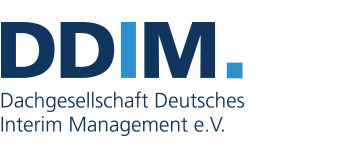Forbes – Interim Management In Europe: Making Great Progress
Ein Presseartikel von Jon Younger im Forbes Magazin | 01.04.24 | 08:52 Uhr EDT
This article, by Freelance Expert Jon Younger, highlights the transformative role of interim management in Europe, comparing it to a Swiss Army Knife due to its versatility and critical importance in modern business environments. As traditional full-time employment becomes increasingly insufficient and cost-prohibitive for many organizations, the adoption of interim and fractional resourcing strategies has surged.
According to the 2024 survey by INIMA (International Network of Interim Manager Associations), over 80% of companies now consider independent professionals crucial for accessing diverse talent and managing complex, volatile market demands. Dachgesellschaft Deutsches Interim Management e.V. (DDIM), as a founding member of INIMA, plays a pivotal role in the 2024 survey, offering crucial insights into the demographics, experiences, and market maturity of European interim managers, thereby underscoring their strategic significance in guiding businesses through the complexities of rapidly evolving market demands.
The demographics of European interim managers typically include males in their mid-50s with substantial experience in their fields, reflecting a trend towards relying on seasoned professionals. The survey also reveals significant variances in the maturity and activity levels of interim management markets across different countries, with Germany, Switzerland, and the UK being particularly robust.
Technological innovation, especially in AI, is drastically reshaping industries, pushing companies to adapt quickly by leveraging interim expertise. This shift is also supported by the growing acceptance of remote and hybrid work models, which expand the pool of available talent and expertise beyond traditional geographic limitations.
The roles of interim managers are diverse, covering everything from general management to specialized functions like IT and finance. The article notes that these managers are often involved in executive-level tasks and strategic initiatives that are crucial for navigating business transformations and market challenges.
Additionally, the survey discusses the utilization rates, showing that the demand for interim managers remains high, with significant engagement from corporations, SMEs, and family-owned businesses. The typical duration of interim assignments is about 11.5 months, illustrating their role in long-term strategic projects rather than short-term fixes.
Younger concludes by noting the challenges and opportunities ahead for interim management in Europe, emphasizing the need for ongoing professional development, risk management, and the integration of digital tools and technologies. This comprehensive survey underscores the increasing importance of flexible, skilled interim professionals in maintaining competitive advantages and driving business success in a rapidly evolving marketplace.
Folgen Sie uns jetzt auf LinkedIn!


